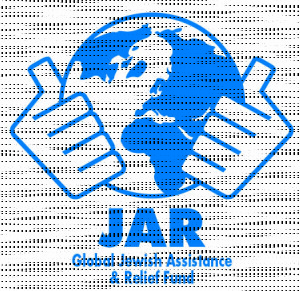 Upon its formation in 1992 by Rabbi Eliezer Avtzon and a dedicated group of individuals, the Global Jewish Assistance and Relief Network, otherwise known as GJARN, was a non-profit originally dedicated to providing emergency relief to collapsed Jewish communities of the Former Soviet Union. However, according to an article chronicling the organization’s history, with time, the organization has grown, expanding its targeted locations. While the network continues to provide relief to Jewish families located in the Former Soviet Union, it now also focuses on seeing to the material welfare of Jews living in Israel, especially those labeled as the working poor.
Upon its formation in 1992 by Rabbi Eliezer Avtzon and a dedicated group of individuals, the Global Jewish Assistance and Relief Network, otherwise known as GJARN, was a non-profit originally dedicated to providing emergency relief to collapsed Jewish communities of the Former Soviet Union. However, according to an article chronicling the organization’s history, with time, the organization has grown, expanding its targeted locations. While the network continues to provide relief to Jewish families located in the Former Soviet Union, it now also focuses on seeing to the material welfare of Jews living in Israel, especially those labeled as the working poor.
Food Care and Prescriptions for Life
This is achieved particularly through the organization’s Food Care program and Prescriptions for Life program, both of which work to provide immediate relief with food, clothing and pharmaceuticals. Essentially, the organization seeks to improve primary medical care, health conditions and promote the development of a civilized society. These programs work towards achieving the organization’s principles. The first is to help people directly, which is achieved through enlisting many supporters and volunteers, according to a post chronicling the methods of practice for the organization. The organization uses a national registry of professional and individual volunteers to match an assistant that can help with the specific needs of the family. Some families have simple needs, such as child care assistance or repair work. Others have deeper needs, particularly in terms of needing professional assistance, such as legal, economical, counseling or social welfare. Using this registry allows the organization to help families directly with what their needs may be.
Grassroots Infrastructure, Self-Sufficiency
The second principle of the organization is to develop a grassroots infrastructure. This essentially means working with local charities and organizations to assist the needs of local families. To achieve this goal, another registry is employed; in this case, all local charities provide funding criteria based on their geological location, types of assistances offered and other key criteria. This allows the lines of communication to be opened, helping the GJARN match up families and charities. In turn, this develops several other benefits. It reduces delivery and administrative costs, thereby allowing donated dollars to go further. At the same time, working with local charities allows the GJARN to help said non-profits to become stronger, working towards self-sufficiency.
Finally, the third principle held by the GJARN is to create long-term solutions that enable people and communities to become self-sufficient. To achieve this, they focus on a simple approach—acknowledging problems and working to create direct, effective and cost-efficient solutions.